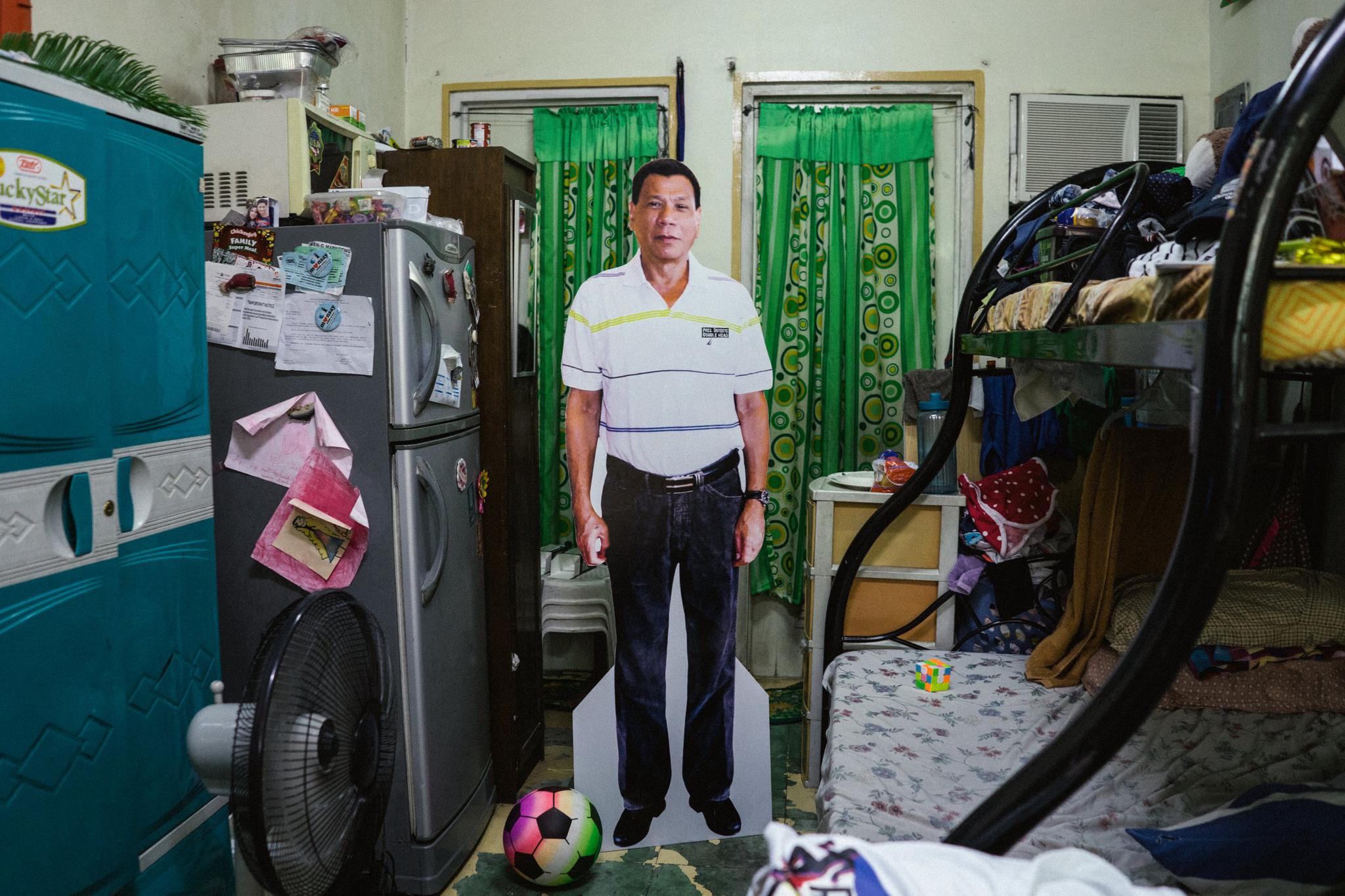UNLIMITED
Disinformation Nation: How Propaganda Helped Duterte

At a café in Baguio City, Philippines, on the island of Luzon, Mary Lou Marigza’s voice trembles as she recounts her experience as a political detainee under then-dictator Ferdinand Marcos, who imposed martial law in the Philippines from 1972 until 1981. Marigza was tortured, mostly by electrocution, for 13 months for organizing anti-government protests.
When the current Philippine president, Rodrigo Duterte, declared martial law on the southern island of Mindanao in May, it brought Marigza back to her time in detention. Like many in the Philippines, she believes Duterte may extend military rule nationwide, and fears the return of Marcos-era abuses. Already, Duterte has threatened to jail martial law critics and dismiss Supreme Court verdicts that challenge his authority.
Marigza is dismayed by the public’s meek response since martial law began on Mindanao, which is home to nearly a quarter of the country’s population. “Duterte is still a popular president,” she says. “And the reaction of the public after the declaration is so poor. There’s not even panic or concern. It seems like it’s just our destiny.”
Not every Filipino feels the same way about martial of Filipinos support Duterte’s declaration, according to a Social Weather Stations survey in June. Duterte polls even better: According to another recent SWS survey, 78 percent of Filipinos are satisfied with him.
You’re reading a preview, subscribe to read more.
Start your free 30 days





